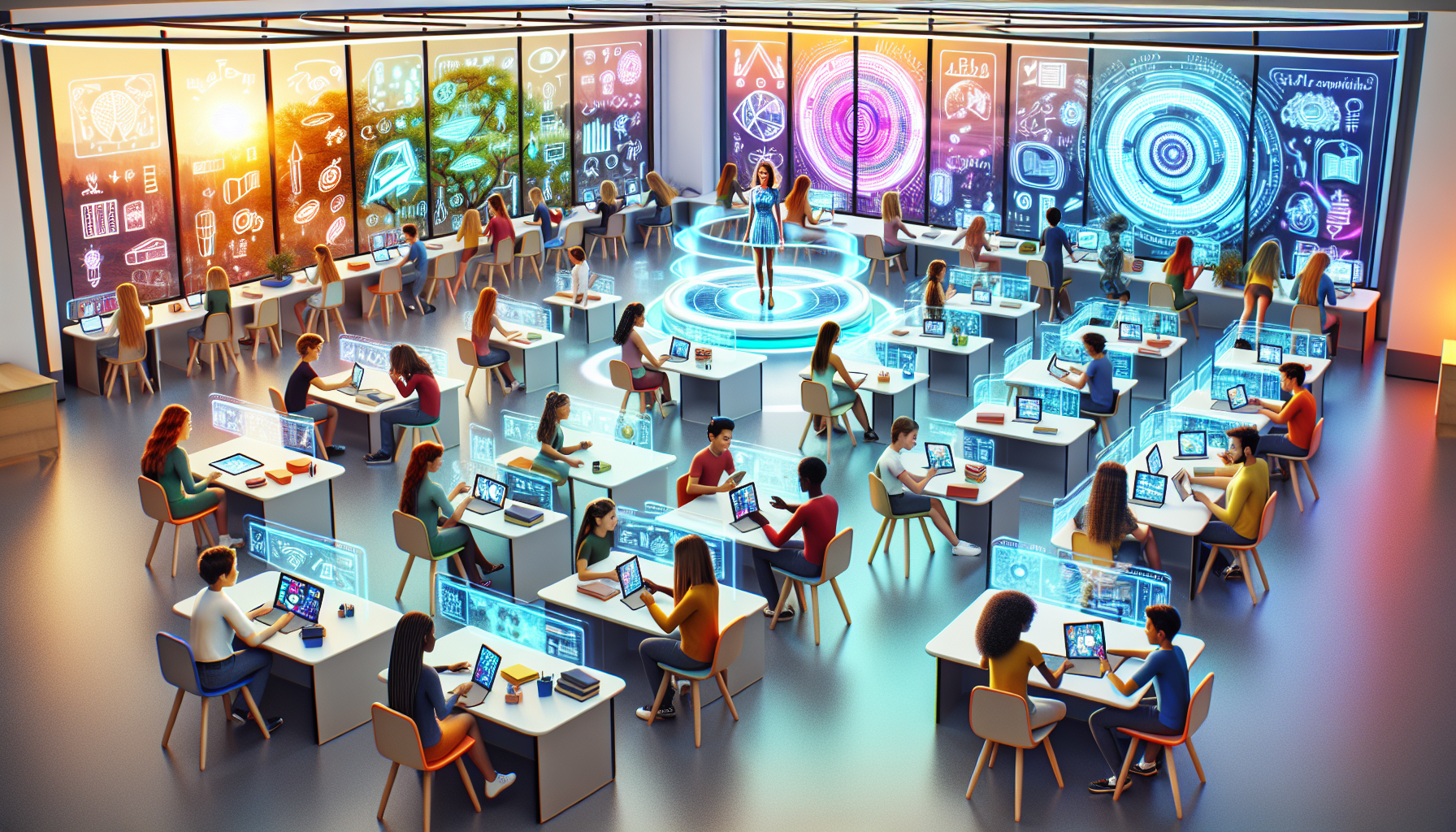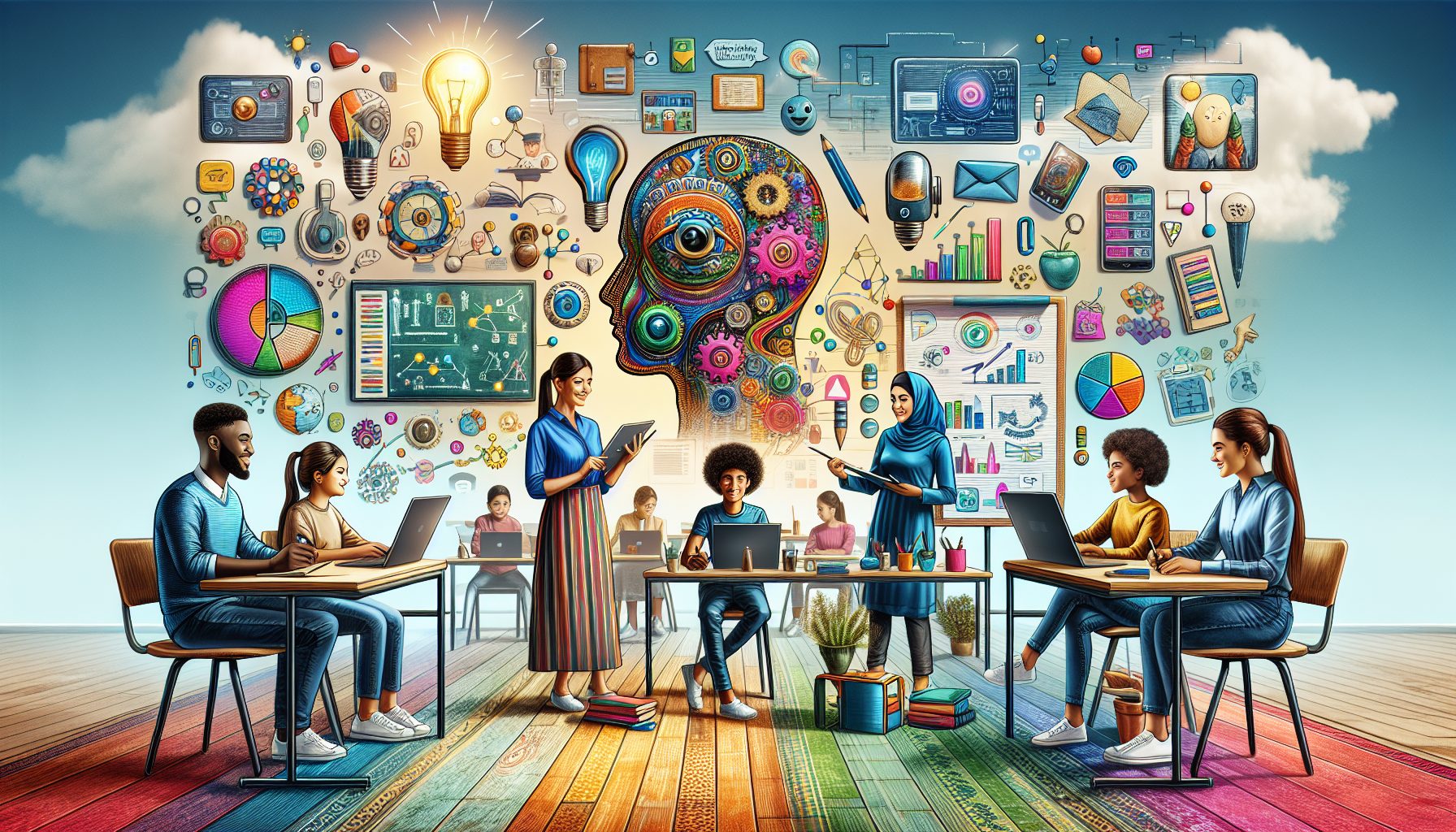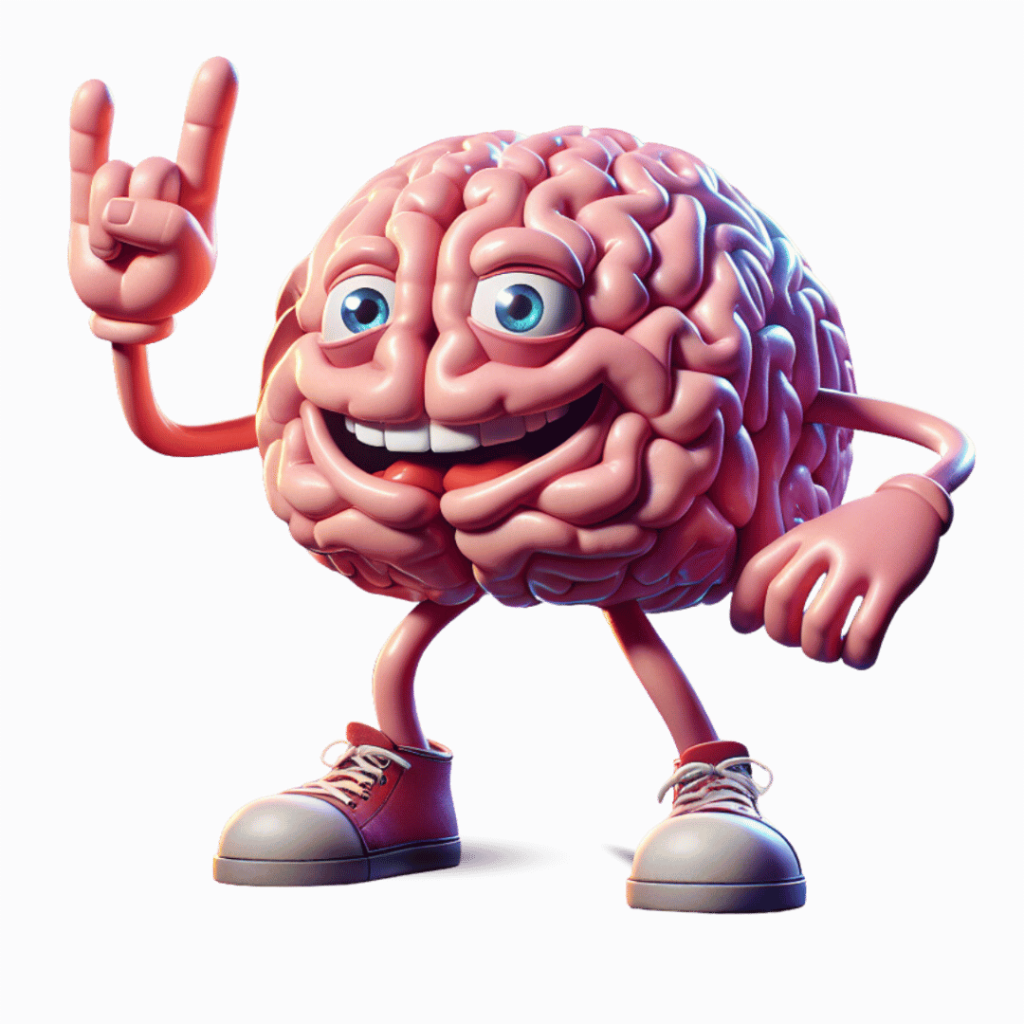From Chalkboards to Chatbots: The AI Revolution in Education

The evolution of education technology is nothing short of astonishing, with innovations transforming the way students learn and teachers educate. From the humble chalkboard to sophisticated chatbots, we’re witnessing a pivotal shift in how information is delivered, personalized, and consumed. This transformation is driven by the incredible potential of artificial intelligence (AI) to reshape classrooms into dynamic, tailored environments.
The metaphor of “chalkboards to chatbots” illustrates this educational metamorphosis—signifying a transition from outdated practices to cutting-edge technology that fosters engagement and improves learning outcomes.
So, what’s fueling this change? How is AI redefining the educational landscape? Let’s explore the multifaceted role of AI in modern education and why it matters more now than ever before.
The Evolution of Educational Tools
To truly appreciate the current revolution, we need to look back: the days of chalkboards and textbooks dictated how knowledge flowed. Teachers stood at the front, often lecturing indiscriminately, while students absorbed information at different paces, leaving many behind.
Fast forward to recent years, and the introduction of computers and the internet began to change the game. Suddenly, information was at students’ fingertips, and the rigid classroom structure started to soften. Then came the mobile explosion—learning shifted to tablets and smartphones, allowing students to engage from anywhere.
Now, AI is taking this evolution to the next level. With predictive analytics, machine learning, and intelligent chatbots, education can get smarter, more personalized, and responsive to every learner’s needs.
The Role of AI in Personalized Learning
Personalized learning isn’t just a buzzword; it’s a necessity in today’s diverse classrooms. Every student has unique strengths, weaknesses, and learning styles. Imagine a classroom where AI fine-tunes educational content to fit individual needs. That’s not science fiction—it’s happening right now.
AI technologies help create adaptive learning experiences that respond in real-time to a student’s progress. For example, platforms can analyze how a student engages with material and adjust challenges accordingly.
Consider these benefits of personalized learning:
- Increased engagement—students are more invested when their learning is tailored to their interests.
- Improved retention—customized content helps students grasp concepts more deeply.
- Empowered educators—teachers can focus on facilitating discussions rather than solely delivering information.
Real-world examples reinforce this concept. Schools implementing AI-driven learning platforms have seen significant boosts in student performance. It’s a testament to how effective personalized education can be. Interested in enhancing your teaching methods? Check out our Skill Enhancement Toolkit.
Enhancing Student Engagement Through AI
Engagement is often the elusive goal in classrooms; however, AI tools are bridging that gap effectively. Imagine interactive chatbots serving as personal assistants, guiding students through lessons at their own pace. These enthusiastic digital mentors can answer questions, provide resources, and keep students on track—like having a pocket-sized tutor available 24/7.
Another powerful element of AI is gamification, which infuses playful competition and rewards into the learning process. With AI, educational games can adapt based on a student’s progress, ensuring challenges remain engaging and appropriate. This strategy not only makes learning fun but also helps to instill a love for knowledge.
For real-life success stories, schools utilizing AI-driven platforms have witnessed students actively participating in lessons and enjoying a deeper connection with content. These tools are digital magnets, drawing students into the material in ways that traditional methods fall short. Want to dive deeper into creative strategies for business and education? Check out Business Survivor Kits.
Streamlining Administrative Processes with AI
Education isn’t just about teaching; it’s also about managing countless administrative tasks. Enter AI, the unsung hero of school administration. From grading assignments to managing schedules, AI can automate repetitive processes, freeing educators to focus on enhancing student experience.
Schools that have adopted AI solutions for administratively heavy tasks report a noticeable decrease in burnout and an uptick in job satisfaction among teaching staff. Imagine a world where grading is significantly faster, parent communications are streamlined, and administrative tasks become efficient. It’s like having a personal assistant who never sleeps!
Consider these administrative benefits:
- Time saved—automated processes reduce the workload, allowing teachers to invest energy into student engagement.
- Data-driven decisions—analytics provide insights on student performance, optimizing resource allocation.
- Efficient communication—automated alerts and messages keep everyone informed without the hassle.
Accessibility and Inclusivity in Education
Education should be a bridge, not a barrier. With AI, teachers can implement tools to ensure all students have equal access to learning materials. Language translation tools, for instance, foster inclusivity among students of diverse backgrounds, while AI cognitive tools offer support for those with learning disabilities.
Implementing these tools not only strengthens the learning environment but also embodies a commitment to equity in education. With AI-driven solutions, educators can design lessons that cater to all learning levels, empowering every student to thrive.
To learn more about how AI can function in other fields like healthcare, consider checking out our AI in Healthcare course.
The Teacher’s Evolving Role in an AI-Powered Classroom
As classrooms evolve, so does the role of the teacher. Rather than simply disseminating information, educators become facilitators of learning. They guide critical thinking, nurture creativity, and help students explore knowledge in meaningful ways.
In an AI-integrated classroom, teachers provide emotional support, foster collaboration, and stimulate inquiry—skills that AI simply can’t replicate. Professional development focused on new technologies will be crucial as they embrace this shift. Building a growth mindset among educators and equipping them with the right tools will be the foundation for successful adaptation.
The transformation presents opportunities to innovate educational approaches. Teachers can leverage AI insights to tailor their methods, keeping curricula robust and relevant.
Future Outlook: Trends and Predictions in AI and Education
The future is bright, and the trajectory of AI in education suggests more incredible innovations on the horizon. Emerging technologies, such as augmented reality (AR) and machine learning advancements, will further enhance learning experiences.
As we look ahead, speculation on future classroom environments sparks excitement. Picture blended learning models where AI tutors collaborate with human educators, bringing immersive experiences that captivate students while fostering learning opportunities that are more widely accessible.
For instance, AR could recreate historical moments inside classrooms, while AI-powered assistants guide students through interactive simulations that boost understanding and retention. The educational landscape will demand adaptability, and here lies the heart of the modern educator’s challenge.
Embracing the Future of Education
The journey from chalkboards to chatbots is not just an evolution; it’s a revolution. As we usher in this new era, it’s crucial for educators, admins, and policymakers to embrace these tools and leverage them to create inclusive, personalized, and engaging learning experiences.
By leveraging AI, we can bridge gaps, offer tailored opportunities, and ultimately empower students to thrive in a rapidly changing world. The horizon is filled with potential—will you be part of shaping the future of education?












